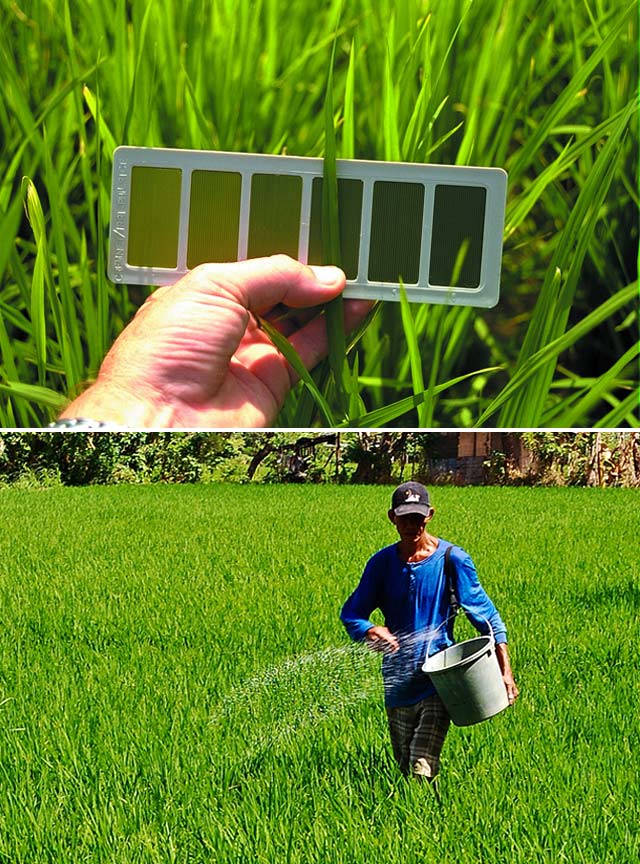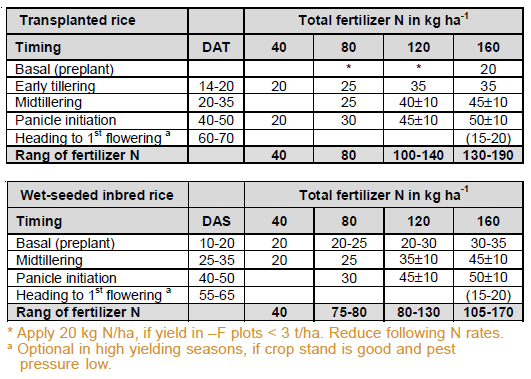Nitrogen split applications
 The efficiency of nitrogen (N) fertilizer use can be improved by monitoring leaf color at 7- to 10-day intervals with the leaf color chart (LCC) and only applying N fertilizer as needed by the crop (see LCC fact sheet).
The efficiency of nitrogen (N) fertilizer use can be improved by monitoring leaf color at 7- to 10-day intervals with the leaf color chart (LCC) and only applying N fertilizer as needed by the crop (see LCC fact sheet).
An alternative approach to N fertilizer timing and management is presented here for cases when it is not feasible for farmers to visit their fields on 7- to 10-day intervals.
What is the N splitting pattern approach
The splitting pattern approach provides a recommendation for the total N fertilizer requirement (kg/ha) and a plan for the splitting and timing of applications in accordance with crop growth stage, cropping season, variety used, and crop establishment method. LCC can be used to adjust individual topdressings. Estimate the required total amount of fertilizer N and develop a splitting pattern. Use the LCC at critical growth stages to adjust predetermined fertilizer N rates.
How to estimate the total fertilizer N requirement
Establish minus fertilizer (–F) plots in farmers' fields (see Fact Sheet Nutrient Omission Plots). Compare yield from the –F plot, which represents the N-limited yield, to a target yield for the site, based on knowledge of attainable yield with the anticipated crop and fertilizer management. The difference between the target yield and N-limited yield represents the anticipated response of rice to N fertilizer.
Determine the total fertilizer N requirement based on a need of 40 to 50 kg N/ha per ton of anticipated response to N. As a general principle 40 kg N per ton N response is appropriate in high yielding seasons, and 50 kg N per ton response is appropriate in lower yielding seasons. A high N requirement of 60 kg N per ton response is observed at sub-optimal N management or when target yield is near potential yield providing a low N response (< 2 t/ha).
How to use the LCC in the splitting pattern approach

Use the critical LCC values given in the Fact Sheet Leaf Color Chart to adjust the amount of split N rates based on crop demand and plant N status. For example, if 30±10 kg N per ha is recommended for a certain growth stage,
- apply 40 kg N/ha, if the leaf color is below the critical value
- apply the standard rate of 30 kg N/ha if the leaf color is equal to the critical value
- postpone the fertilizer application and apply a lower rate of 20 kg N/ha if the leaf color is above the critical LCC value.
How to develop a splitting pattern
Use the tables on the right to look up splitting patterns for fertilizer N for the recommendation domain. Further adaptation to local conditions with farmers' participation may be required.







